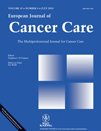‘It's hard to take because I am a man's man’: an ethnographic exploration of cancer and masculinity
Abstract
CECIL R., Mc CAUGHAN E. & PARAHOO K. (2010) European Journal of Cancer Care‘It's hard to take because I am a man's man’: an ethnographic exploration of cancer and masculinity
This paper reports on a study into male participation in cancer support groups, which elicited data on the impact of cancer on masculinities. This small qualitative pilot study, which took place in Belfast in Northern Ireland, involved semi-structured interviews with eight men with a history of cancer who were no longer being actively treated (i.e. they were not receiving chemotherapy or radiotherapy), and who were proficient in spoken and written English. Whereas most studies into men with cancer that have looked at issues of masculinity have been on prostate and/or testicular cancer and have tended to focus upon sexual ability and activity, this study identified more sociological issues of concern that also present challenges to masculinity and to male identity. Economic concerns were identified as being major issues for men, as were their changing role vis-à-vis their family, friends and colleagues, and changes to their body and to their body image. The findings from this study indicate that cancer support services need to be gender sensitive in order to ensure that interventions do not undermine masculine values but address men's concerns and foster their positive coping strategies.




